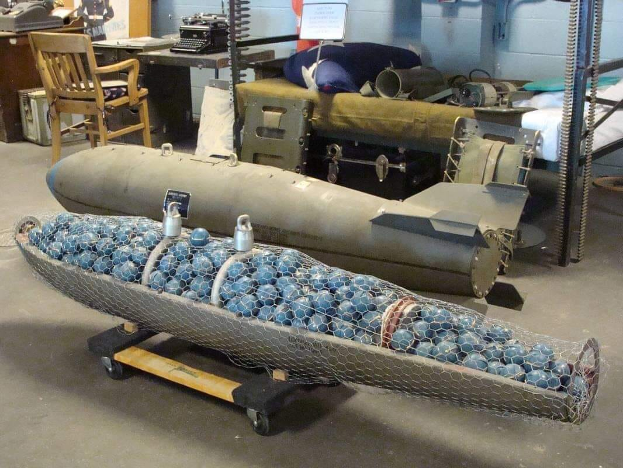The Cluster Munition Coalition (CMC), a monitoring group for cluster munitions, said that the military council is using domestically-produced cluster bombs in airstrikes across the country including Chin State after the coup.
Cluster Munition Monitor has reviewed photographs showing the remnants of cluster bombs used in attacks by the Myanmar Air Force in Chin, Kayah, Karen, and Shan states over the past 13 months.
A new report by the CMC’s monitoring wing shows how Myanmar’s armed forces have used an apparently domestically produced cluster bomb in attacks in several parts of the country since 2021, including as recently as early June 2023.
Myanmar is not known to have produced or used cluster munitions previously, although a rudimentary cluster munition adaptor was documented a decade ago.
Another attack in Mindat Township, Chin state in April 2023 also involved cluster bomb use.
Remnants of this same type of cluster bomb were previously found in the same township after a July 2022 air attack that wounded 13 civilians.
Salai Har Awn, Spokesperson of the Chinland Defense Force-Mindat said: “We thank the CMC for documenting the attacks with the use of cluster bombs like that. Sometimes in the future, we can take action against the military dictator using these data. We have got the data about the war crimes. We have systematically collected the data about the military council’s human rights violations and targeted attacks on civilians in Mindat Township.”
These attacks are part of an internal conflict that has intensified in recent months in both northwest and southeast Myanmar, resulting in civilian casualties, widespread destruction of homes and other civilian objects, and displacing people, the report says.
The CMC report said that the cluster bombs used by the Air Force look similar to other products made by Myanmar’s state-owned weapons production facility or Defense Products Industries of Myanmar, but there are no markings on the bomb remnants that show where they were manufactured or assembled.
The weapon consists of a 120mm mortar projectile with a plastic arming vane that is attached to an impact fuse that detonates each submunition on contact, the report says.
Many submunitions fail to explode on initial impact, leaving duds that can indiscriminately wound and kill, like landmines, for years until they are cleared and destroyed. A total of 123 countries have prohibited the weapon under the 2008 Convention on Cluster Munitions, but not Myanmar.
The Cluster Munitions Coalition is a large cluster munitions monitoring group based in over a hundred countries around the world.
Sent by KMG

